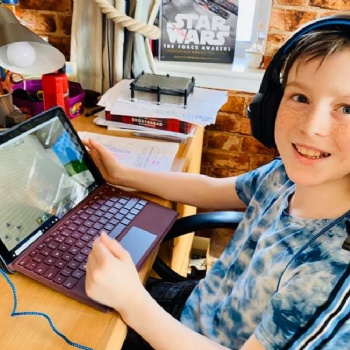Why school choice is even more important in these uncertain times

O wonder!
How many goodly creatures are there here!
How beauteous mankind is! O brave new world,
That has such people in't.
— William Shakespeare, The Tempest, Act V, Scene I, ll. 203–206[6]
Right now, education is facing its greatest ever challenge: never before have so many schools been closed for so long with so little certainty over when they will reopen. Latest research by Imperial University, London suggests that the current disruption to normal lives may last for 18 months with periods of more or less rigorous social distancing employed by central government when required. What, then, is to become of our children's education?
Although we cannot be certain, we are likely to face a period of significant societal change. The old models of global and local transportation, education and commerce seem to have been upended, with new structures starting to emerge to meet new realities. From huge demand for online delivery services, to the sudden ubiquity of Zoom, FaceTime and Skype communications, society is seeing the emergence of a brave new world (albeit hopefully more as Shakespeare imagined, rather than Aldous Huxley). Inevitably, parents worldwide have been forced to experience the realities of home-schooling. We now have a ready-made model to evidence whether home-schooling via technology really will suit families in the longer term.
In these times of flux and change, schools need to be nimble and innovative; they need to be outward looking and dynamic; and above all they need to work closely with parents, teachers and pupils to make sure their provision closely matches the needs of their communities.
Looking ahead, long term disruption means that schools may need their teachers to flip between online and physical lessons at short notice and of varying lengths. Children, too, might find that a more flexible approach to learning is more suitable. As a result, school choice is even more important now than ever: matching the ability of the school to provide education in a changing world with the ability level of the pupil to access online lessons now seems more important than distance from the front door or obsolete Ofsted ratings.
The one silver lining to this otherwise ominous cloud is that there has never been a better time to engage in online learning. Collaborative, video-based software is now ubiquitous, as is decent broadband and increasingly affordable Internet enabled devices. Parents would be well placed to consider all of this carefully when considering their next school move.